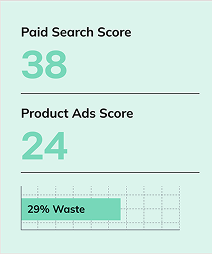Home / Blog / Might Google Personalize Search Results Based upon Membership in Social Network Communities
Might Google Personalize Search Results Based upon Membership in Social Network Communities
Published: November 30, 2016
Share on LinkedIn Share on Twitter Share on Facebook Click to print Click to copy url

Contents Overview

Might Google use information from social networks to personalize someone’s search queries and results, and improve their experience with the search engine?
A patent granted to Google at the United States Patent and Trademark Office in early November describes a process that would allow for such personalization.
Related Content:
The patent points out some potential problems that can happen in Google search results because of personalization that might be improved upon by using additional data from sources such as social networks:
Unfortunately, because conventional search engines cannot take into account a particular user’s personality, preferences, interests, etc., such search engines will often provide irrelevant results. For example, a search for the query term “apple” may provide results about Apple brand computers, the fruit apple, or a particular musical group called apple, while a particular user may only be interested in one of these topics for the term “apple.” Thus, it would be useful to provide methods and systems that take into account information indicative of a particular entity’s preferences, interests, etc., when an electronic search is performed for/on behalf of such entity.
That social network personalization information might be taken from profile information submitted by the user, as well as from cookies installed on the user’s computer to track the user’s behavior.
The patent is:
Personalizing search queries based on user membership in social network communities
Inventors: Ellen Spertus and Stephen R. Lawrence
Assigned: Google
US Patent 9,489,462
Granted November 8, 2016
Filed: August 25, 2014
Abstract
Methods and systems for improving user search experience with a search engine by providing a way for associated users to personalize search queries and/or search results based on users’ information gathered from a social network. Search personalization can be achieved through the tailoring of search methodologies or the ranking or ordering of search results following information gathered for each user.
The patent describes an alternative it might follow in which case a search engine asks a searcher if it wants to see personalized results based upon information from the social network.
The patent doesn’t choose a specific social network that it would use information from. It might be safe to assume that it would use information from Google+ before a source such as Facebook. The patent does refer to Orkut at a couple of points and includes it in the screenshot in its drawings, but Orkut was closed in 2014, which is the year that this patent was filed. Membership in a Google+ community could have an impact upon personalization, and work as described in this patent.
We are told that the profile information collected by the social network can include a lot of information, such as:
…relationship status, birth date, age, children, ethnicity, religion, political view, sense of humor, sexual orientation, fashion preferences, smoking habits, drinking habits, pets, hometown location, passions, sports, activities, favorite books, music, television, or movie preferences, favorite cuisines, email addresses, location information, IM name, phone number, address, skills, career, or any other information describing, identifying, or otherwise associated with a profile. Entries for a business profile can include market sector, customer base, location, supplier information, net profits, net worth, number of employees, stock performance, or other types of information associated with the business profile.
Additionally, entries within a profile can include associations with other profiles. Associations between profiles within a social network can include, for example, friendships, business relationships, acquaintances, community or group associations, activity partner associations, common interest associations, common characteristic associations, or any other suitable type of relationship connection (e.g., social relationship connection). Members can set up new associations or join existing associations in the social network as desired. For example, a member can set up a “Computer Science community” for those members who are interested or work in the computer science field. Likewise, a member can join an existing “Baseball community” if the member is interested in baseball and/or sport in general. Associations between profiles can also have various levels. For example, friendship levels can include, a “haven’t met” level, an “acquaintance” level, a “friend” level, a “good friend” level, a “best friend” level, and other suitable levels.
Profile information can also include information about associations with other people on the social network, such as friendships or business associations, or membership in specific communities.
The patent tells us that a searcher might have some control over how much personalization impacts his or her search results by introducing a scale slider or a set of listings of communities that a person is a member of, and they can set the slider to indicate how much they want it to personalize their results.
Personalization by being a member of a community can mean that sites mentioned in the community might be considered preferred sites, and common terms or phrases from messages posted to a community can impact what might personalize those search results.
About Bill Slawski
MORE TO EXPLORE
Related Insights
More advice and inspiration from our blog
How Home Goods Buyers Decide in 2026 Across Social, Search, AI, and Your Website
How home goods buyers discover, evaluate, and decide in 2026 across...
Kimberly Anderson-Mutch| December 19, 2025
Inside the Live Selling Playbook: How TikTok Affiliates Became a Growth Engine for Brands
TikTok affiliate marketing is evolving fast. Learn how one brand built...
Kimberly Anderson-Mutch| October 23, 2025
6 Ways to Build Stronger Client Relationships
Building client relationships that are strong requires you to put in...
Somar Deal| August 04, 2025





